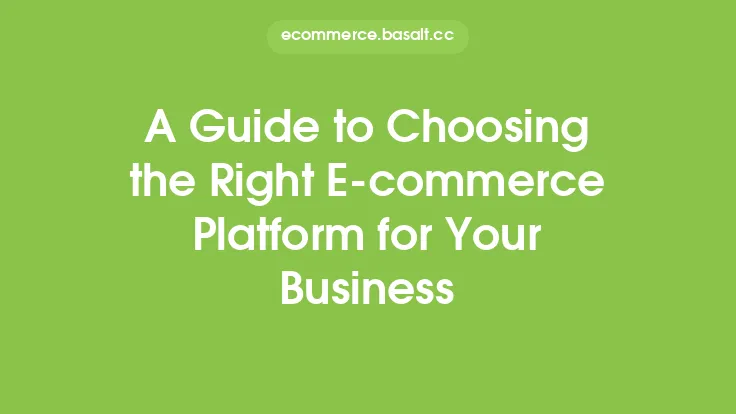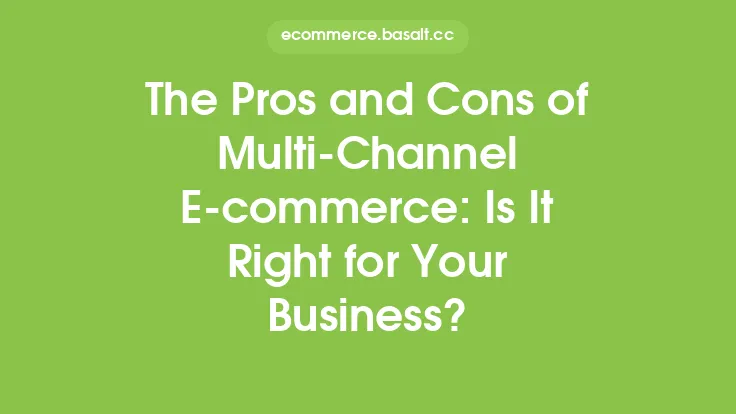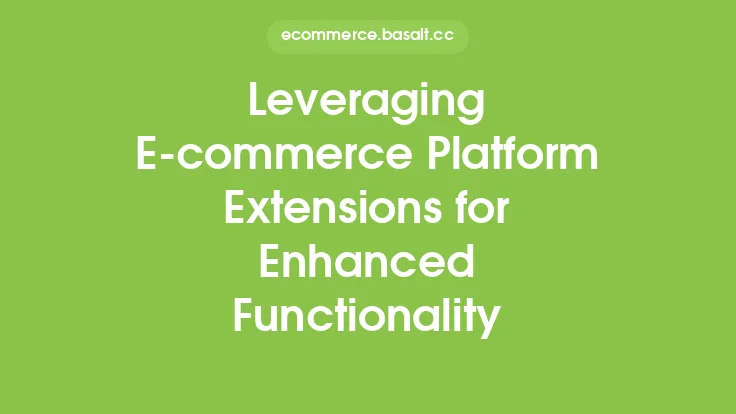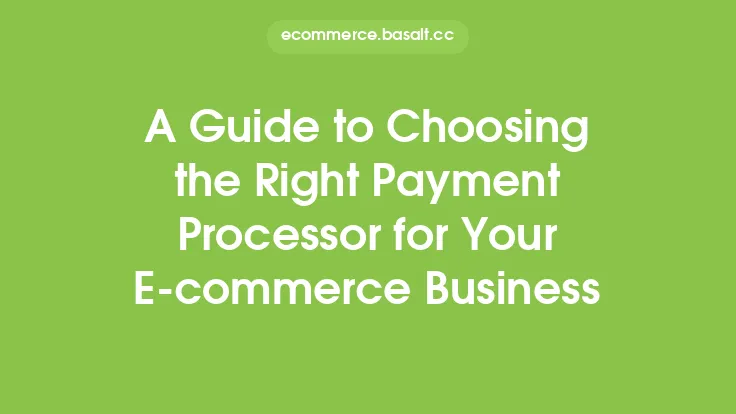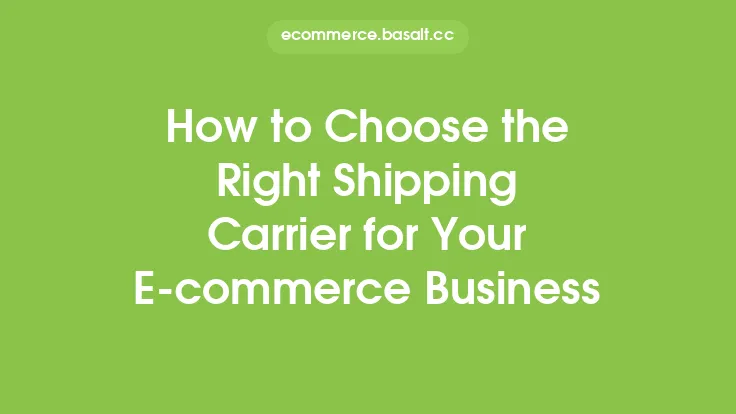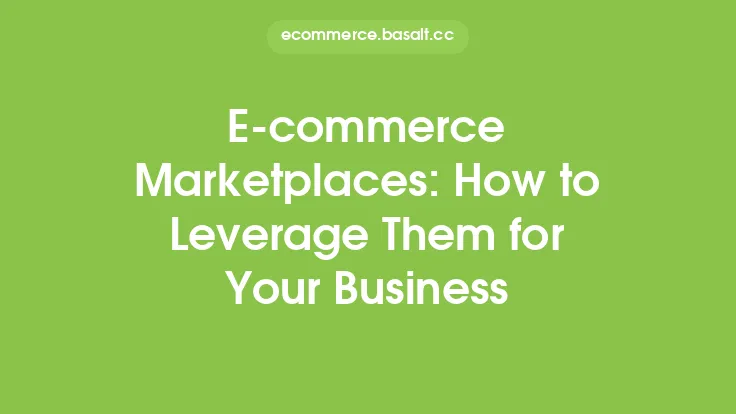In today's digital age, having a unique and recognizable brand is crucial for businesses to stand out in a crowded e-commerce market. Customizing your e-commerce platform is an effective way to create a distinctive brand identity that resonates with your target audience. A customized platform allows you to tailor your online store's design, layout, and functionality to reflect your brand's values, personality, and aesthetic. This, in turn, helps to build trust, increase customer engagement, and drive sales.
Understanding the Importance of Customization
Customization is essential for e-commerce businesses as it enables them to differentiate themselves from competitors and create a memorable brand experience. A generic, out-of-the-box platform can make your online store look like every other, which can lead to a lack of brand recognition and customer loyalty. By customizing your platform, you can create a unique and cohesive brand image that extends across all touchpoints, from your website and social media to your packaging and customer service.
Key Elements of E-commerce Platform Customization
There are several key elements to consider when customizing your e-commerce platform. These include:
- Template design: Choosing a template that reflects your brand's style and aesthetic, or creating a custom design from scratch.
- Color scheme and typography: Selecting colors and fonts that align with your brand's identity and are consistent across all marketing channels.
- Layout and navigation: Organizing your website's layout and navigation to create a seamless and intuitive user experience.
- Product showcases: Creating custom product showcases and galleries to highlight your products in a unique and compelling way.
- Branding elements: Incorporating branding elements, such as logos, icons, and imagery, to reinforce your brand's identity.
Customization Options for E-commerce Platforms
Most e-commerce platforms offer a range of customization options, from basic to advanced. These may include:
- Theme customization: Many platforms offer a range of pre-designed themes that can be customized to fit your brand's style.
- Template editing: Some platforms allow you to edit the HTML, CSS, and JavaScript code of your template to create a fully custom design.
- Module and extension installation: Installing third-party modules and extensions to add custom functionality to your platform.
- API integration: Integrating your platform with third-party services using APIs to create a customized and seamless user experience.
Best Practices for Customizing Your E-commerce Platform
To get the most out of your e-commerce platform customization, follow these best practices:
- Keep it simple and intuitive: Avoid cluttering your website with too many features or complicated navigation.
- Ensure mobile responsiveness: Ensure that your customized platform is fully responsive and provides a seamless user experience across all devices.
- Test and iterate: Test your customized platform regularly and make iterations based on customer feedback and performance data.
- Stay consistent: Ensure that your customized platform is consistent with your brand's overall identity and messaging.
Common Challenges and Solutions
Customizing your e-commerce platform can be a complex and time-consuming process, and there are several common challenges to be aware of. These include:
- Technical difficulties: Overcoming technical difficulties, such as coding errors or compatibility issues.
- Design inconsistencies: Ensuring that your customized design is consistent across all pages and devices.
- Performance issues: Optimizing your customized platform for performance to ensure fast loading times and a seamless user experience.
Conclusion
Customizing your e-commerce platform is a powerful way to create a unique and recognizable brand identity that resonates with your target audience. By understanding the importance of customization, key elements of platform customization, and best practices for customization, you can create a tailored online store that drives sales, builds customer loyalty, and sets your business apart from the competition. Whether you're just starting out or looking to revamp your existing platform, customization is an essential aspect of e-commerce platform management that can help you achieve your business goals.
